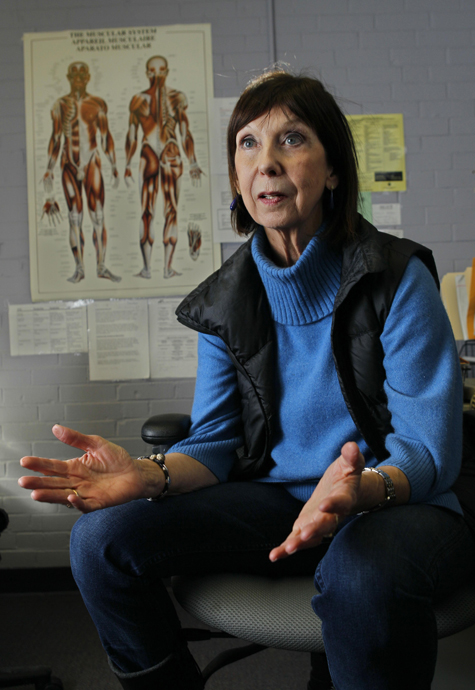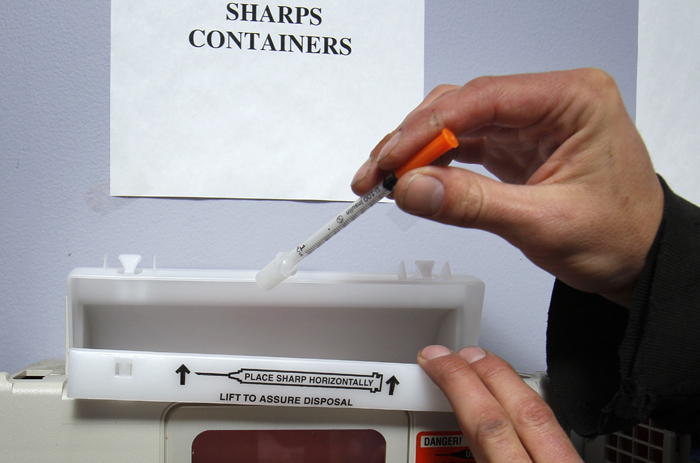AUGUSTA — Hypodermic needle exchange programs in Maine, which collected more than a quarter- million syringes in a recent 12-month period, are running into serious funding problems because of the overall poor economy, officials who oversee the programs say.
None of Maine’s four exchange programs receives public funding, but private grants and other donations are drying up.
“It is having an impact overall,” said James Markiewicz of the state Department of Health and Human Services’ Division of Infectious Diseases, which monitors the certified Hypodermic Apparatus Exchange programs run from Augusta, Bangor, Ellsworth and Portland.
The syringes are collected from injection drug users to prevent the spread of HIV, hepatitis C and other diseases. New needles are then distributed to those who turn in used syringes.
The state Center for Disease Control and Prevention says 260,050 syringes were collected and disposed of through the four programs during the 12-month period that ended Oct. 31.
State law requires reports on the program to be filed annually with the Legislature’s committees on Judiciary and Health and Human Services. A report is due this month.
The Bangor-based eastern Maine AIDS Network reported the largest number of syringes collected, 94,505. The totals for the other regions were: Portland 92,043, Ellsworth 38,629 and Augusta 34,873.
Portland’s certified program is run by the city. The other programs are the Down East AIDS program in Ellsworth, Eastern Maine AIDS Network in Bangor and HealthReach Harm Reduction in Augusta.
The totals for syringes distributed through the program were on a par with the numbers collected: Bangor 93,053, Portland 90,267, Augusta 32,889 and Ellsworth 46,999.
State figures show that 64 percent of those enrolled in needle exchange programs are male and 36 percent female. The number of enrollees has increased at least since 2009.
Dr. Caroline Teschke, program manager for clinical services at Portland’s India Street clinic where an exchange program is run, said funding has all but disappeared for needle exchanges in the city, but she’s determined to keep it going because of the public health impact. In the past the program has cost $10,000-$12,000 per year, she said.
“This is a program that runs on an absolute shoestring,” said Teschke. “For every case of HIV or hepatitis C (prevented), it saves about $375,000. For an absolute minimal amount of money, we can have a huge public health impact.”
No federal or state money is used for needle exchange programs. Congress on Dec. 17 reinstated the federal ban on such programs, and no state money has been involved, the state Department of Health and Human Services says.
Markiewicz said the state monitors and certifies the programs to make sure they meet requirements for health and safety and data gathering.
Teschke acknowledged that needle exchange programs “are not popular because people don’t like to do nice things for people who use drugs.” But she said people should consider the cost-effectiveness of the programs.
“The health of the community depends on the health of the poor and marginalized,” she said.
The national Centers for Disease Control and Prevention says that as of 2004, injection drug use accounted for about one-fifth of all HIV infections and most hepatitis C infections in the United States.
Injection drug users become infected and transmit the viruses to others through shared contaminated syringes and high-risk sexual behaviors, the CDC said.
Send questions/comments to the editors.



